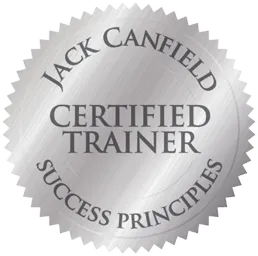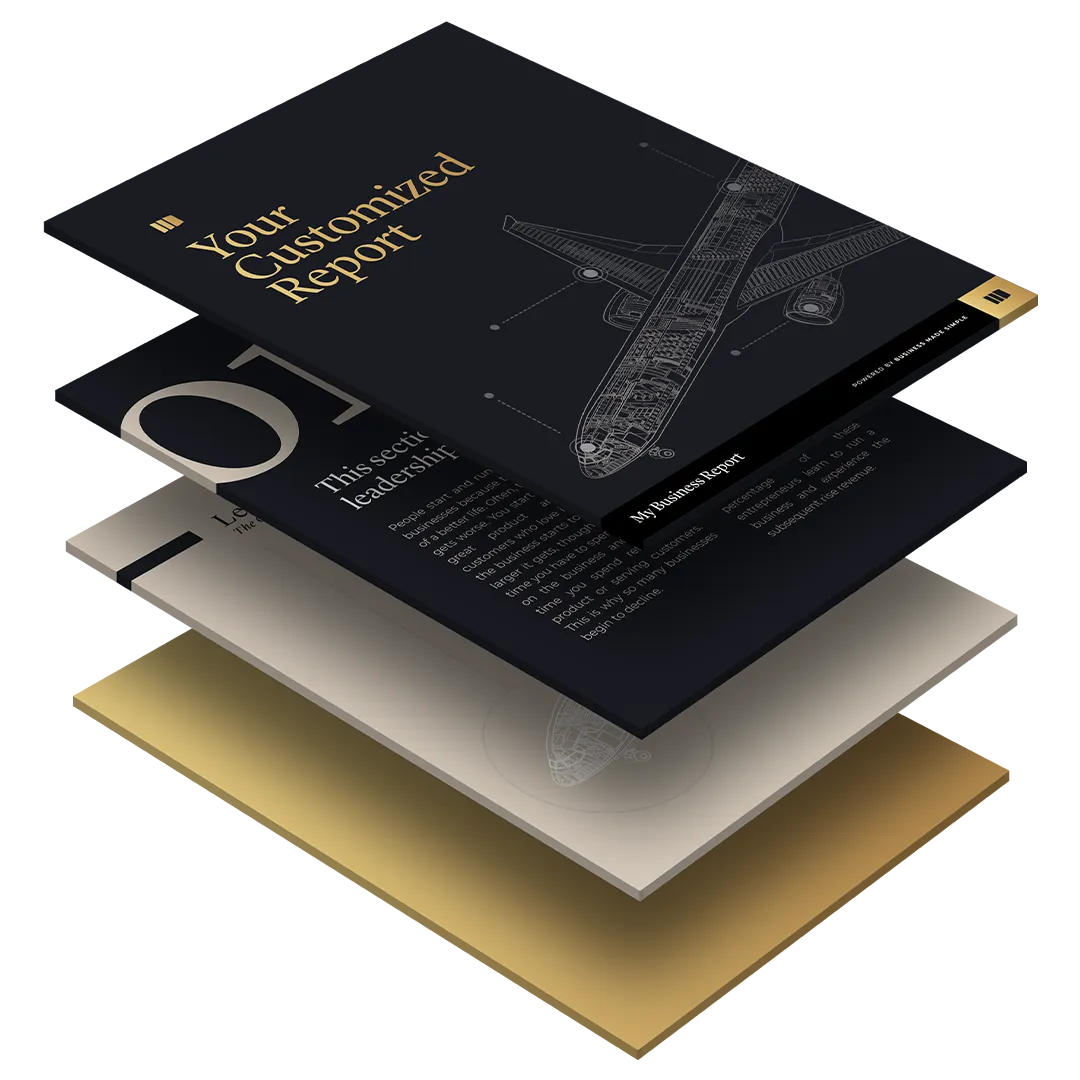

Build the life and business you’ve always wanted
Expert coaching, step-by-step courses,
vibrant community, and inspiring podcast
—all in one place.
You want a thriving business and a satisfying life, but…
X
Marketing
2
Sales
You'll close more sales when you stop selling and invite customers into a story.
3
Leadership
Grow your business by aligning your team around THREE economic priorities. Your team will love you for it.
4
Products
Increase your revenue by prioritizing (and making) products that are high in demand and high in profit.
5
Overhead & Operations
Run a lean business by organizing your entire team using only five meetings.
6
Cash Flow
Install a simple, easy playbook that ensures you never run out of cash.
What’s Standing in Your Way
You’re overwhelmed by too much advice and no clear path.
You’re overwhelmed by too much advice and no clear path.
You feel stuck or isolated on your journey.
You struggle to find a trusted guide or supportive community.
You want to make changes, but motivation and strategy are missing.
It’s easy to get lost when you’re building something important
You don’t have to go through life burned out and stretched thin. Our business coaches can help you…
Get out of the day-to-day
Get dependable, predictable results
Break revenue records
Put the right processes in place
Achieve your most ambitious goals
Enjoy more free time and flexibility
Whether you’re looking to drive more sales, improve customer experience, or achieve bigger goals, we can help.
THE BENEFITS OF COACHING
Before vs After
Overwhelmed with where to start
Feeling isolated and unsupported
Struggling with work-life balance
Inconsistent results and uncertainty
Lack of professional guidance
Gain clarity and a step-by-step plan
Join a community of like-minded entrepreneurs
Create a harmonious life and thriving business
Achieve consistent growth and confidence
Personalized coaching from experienced mentors
A Simple PRocess

Step 1
Install a proven plan to double your revenue
We'll create a customized growth plan, saving you and your team hours every week.

Step 2
Start seeing results right away
We'll create a customized growth plan, saving you and your team hours every week.

Growth
If you desire consistent growth and success in your entrepreneurial journey...
Enjoy a more profitable business and more time to do what you love
INTRODUCING
Small Business Flight School
The small online mastermind program helping you double your revenue
You shouldn’t have to waste your time trying a million things to grow your business when there's already a proven plan that will work for you. Small Business Flight School is a hands-on, rapid-pace program for small business owners who are serious about implementing a plan to grow their business and revenue.

ON DEMAND learning
(COMING SOON)
Simple Courses To Change Your Life

Productivity Mini Course
The Productivity Mini Course is a comprehensive guide that helps you achieve maximum productivity in minimum time. This course is designed to help you develop effective strategies to manage your time, prioritize tasks, and stay focused on your goals.
Time Management
Focus and Concentration
Goal Setting

Happiness Mini Course
Welcome to the Happiness Mini Course, designed to help you cultivate a happier and more fulfilling life. In this course, you will learn proven strategies and techniques to boost your mood, increase your well-being, and find joy in everyday moments.
Shift your mindset
Master Mindfulness
Enjoy peace of mind

Core Values Mini Course
This course is designed to help individuals identify and understand their core values. Through interactive sessions, participants will explore what values are most important to them and how these values influence their decisions, behaviors, and life goals. The course includes practical exercises for aligning daily actions with these core values.
Increased Self-Awareness
Improved Decision Making
Enhanced Life Satisfaction

Healthy Relationships Mini Course
This course offers insights and tools for building and maintaining healthy relationships. It covers topics such as communication skills, emotional intelligence, boundary setting, and conflict resolution. Participants will engage in activities that help develop understanding and empathy, crucial for nurturing positive relationships.
Better Communication Skills
Stronger Emotional Connections
Effective Conflict Resolution

Goal Setting Mini Course
This course focuses on teaching effective goal-setting techniques. Participants will learn how to set realistic, achievable goals, create actionable plans, and stay motivated. The course also covers methods for tracking progress and adapting goals as circumstances change.
Clearer Focus
Increased Motivation
Achievement of Personal and Professional Goals

Gratitude Mini Course
This course explores the concept of gratitude and its impact on mental and emotional well-being. Participants will engage in practices such as gratitude journaling and mindfulness exercises. The course aims to cultivate a habit of appreciating the positive aspects of life.
Enhanced Mental Health
Improved Relationships
Positive Mindset

Enneagram Mini Course
This course provides an introduction to the Enneagram, a powerful tool for personal and spiritual growth. Participants will discover their Enneagram type and learn how it influences their behavior, relationships, and emotional patterns. The course includes practical tips for using this knowledge for self-improvement.
Self-Discovery
Improved Relationships
Personal Growth
THERE'S MORE
Bonuses Included

Bonus name
This is the description of the bonus and what they'll get

Bonus name
This is the description of the bonus and what they'll get

Bonus name
This is the description of the bonus and what they'll get
TESTIMONIALS
We are obsessed over your success

"I was lost in the entrepreneurial world, but this coaching illuminated my path, leading to a profitable business and a balanced life."
- Jane R.

"The on-demand courses were game-changers for me - they transformed my sporadic efforts into a consistent success story."
- Emma W.

Joining the Livetastic community was the best decision. I found support, guidance, and lasting friendships.
- Annie P.




Hi, I am Justin
As a Coach and a Guide, my mission is to support you on a path of self-discovery, growth, and positive change.
Together, we will explore your aspirations, challenges, and dreams, unlocking the hidden potential within you and helping you get to where you want to go.
Because everyone deserves the tools they need to create the life and business they love.
To Your Success,

Certified Business Coach
Certified by Business Made SimpleStoryBrand Framework
Certified by StoryBrand & Donald MillerSuccess Principles Trainer
Certified by Jack CanfieldCertified Enneagram & DISC
Certified by CloverleafCertified Sales Funnel Builder
Certified by Russell BrunsonMaster Certified Life Coach
Certified by Transformation Academy
Ramsey Financial Coach
Certified by Dave Ramsey
PRICING
Choose your plan
Basic Plan
Great bonus you get lorem ipsum
Amazing thing you get lorem ipsum
Great bonus you get lorem ipsum
Amazing thing you get lorem ipsum
Great bonus you get lorem ipsum
$97/m
Business Plan
Great bonus you get lorem ipsum
Amazing thing you get lorem ipsum
Great bonus you get lorem ipsum
Amazing thing you get lorem ipsum
Great bonus you get lorem ipsum
$197/m
Pro Plan
Great bonus you get lorem ipsum
Amazing thing you get lorem ipsum
Great bonus you get lorem ipsum
Amazing thing you get lorem ipsum
Great bonus you get lorem ipsum
$297/m
What you get
Features

Expert Coaching Sessions
Unlock your potential with personalized coaching sessions. These sessions are designed to provide you with the insights, tools, and accountability you need to thrive.

Comprehensive On-Demand Courses
Dive into our extensive library of on-demand courses, available 24/7. These meticulously crafted modules cover a wide range of topics, from business fundamentals to advanced strategies, ensuring you have the knowledge you need to succeed at your own pace.

Vibrant Entrepreneurial Community
Join a community of like-minded entrepreneurs. Our platform fosters networking, collaboration, and support, allowing you to share experiences, learn from peers, and build lasting relationships. This community is your space to find motivation, inspiration, and camaraderie.

Tailored Business Strategies
Each entrepreneur's journey is unique. That's why we offer customized business strategies developed to fit your specific needs. From market analysis to growth planning, our approach ensures that your business has a solid foundation and a clear path to success.
A Powerful Business Assessment
Get your FREE CUSTOM PLAN to Optimize Your Small Business
You need a plan to grow your small business. Take the 10-minute assessment, and you'll get a FREE, customized plan that will optimize your small business so it generates more revenue and profit.


satisfaction guaranted
100% Guaranteed
Lorem ipsum dolor sit amet, consectetur adipisicing elit. Autem dolore, alias, numquam enim ab voluptate id quam harum ducimus cupiditate similique quisquam et deserunt.
ALL THE ANSWERS TO ALL YOUR QUESTIONS
Frequently Asked Questions
Your Title Here
Lorem ipsum dolor sit amet, consectetur adipisicing elit. Autem dolore, alias, numquam enim ab voluptate id quam harum ducimus cupiditate similique quisquam et deserunt, recusandae.
Your Title Here
Lorem ipsum dolor sit amet, consectetur adipisicing elit. Autem dolore, alias, numquam enim ab voluptate id quam harum ducimus cupiditate similique quisquam et deserunt, recusandae.
Your Title Here
Lorem ipsum dolor sit amet, consectetur adipisicing elit. Autem dolore, alias, numquam enim ab voluptate id quam harum ducimus cupiditate similique quisquam et deserunt, recusandae.
Free 7 Day Trial
Create your free account and try it for yourself to see how you like it!
Copyright© 2024 | COACHING FM | Terms of Use | Privacy Policy | DMCA